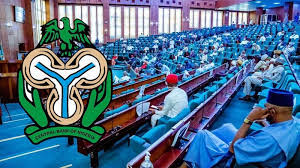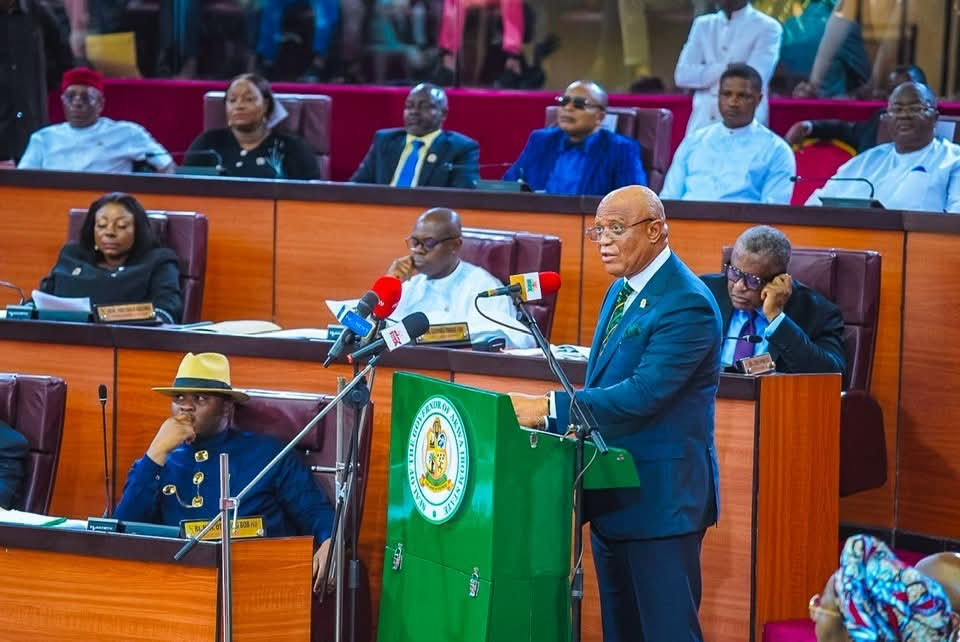The federal government has directed the Financial Reporting Council of Nigeria (FRC) to peg the annual dues payable by private sector’s Public Interest Entities (PIEs) at ₦25 million.
The federal government said that this would align the annual dues payable by the PIEs with the cap already in place for publicly quoted entities as provided in the FRC Act 2023.
PIEs are large privately owned businesses that are not listed in the stock exchange.
The Minister of Industry, Trade and Investment, Dr. Jumoke Oduwole, announced this directive on Sunday in a memo titled “Federal Ministry of Industry Trade and Investment Addresses Stakeholder Concerns on Financial Reporting Council (Amendment) Act 2023.”
Oduwole said that “this directive creates a stable environment for compliance for affected companies in the short term and reflects the Ministry’s commitment to prioritising transparency, investor confidence, and regulatory equity while allowing the Ministry of Justice to appropriately determine the longer-term path for seeking legislative amendments on behalf of the federal government, if required.”
The minister gave the directive after providing a detailed briefing to President Bola Ahmed Tinubu on the critical concerns raised by members of the organised private sector (OPS) on the implications of Section 33D of the FRC (Amendment) Act 2023.
Oduwole said in the memo that the Federal Ministry of Industry, Trade and Investment (FMITI) convened a high-level stakeholder engagement in March 2025 in response to the FRC (Amendment) Act 2023.
She said that the stakeholders’ engagement was prompted by growing concerns regarding the provisions and implementation of annual dues for PIEs as contained in the FRC Act 2023.
“As early as December 2024, leading stakeholders, including the Oil Producers Trade Section (OPTS), the Association of Licensed Telecommunications Operators of Nigeria (ALTON), and the Nigeria Employers’ Consultative Association (NECA), had expressed reservations through direct consultations and public advocacy about the provision in the FRC Act.
“A key issue raised was the reclassification of large private companies as PIEs, which imposed a disproportionate financial burden.
“Under the amended Act, such companies are required to remit annual dues ranging from 0.02 per cent to 0.05 per cent of turnover, with no upper limit—compared to a fixed ₦25 million levy for publicly quoted companies, regardless of their size or market capitalization,” the minister said.
She said that while the FRC has continued to play a central role in setting and enforcing accounting and financial reporting standards, stakeholders noted that these provisions could lead to unintended unsustainable increased compliance costs, and ultimately negatively affect investors’ confidence.
The minister said that in response the OPS complaints, she convened a formal public stakeholders’ meeting consultation March 26, 2025, to assess the policy implications and ensure its alignment with principles of fairness, transparency, and economic competitiveness.
According to her, tis is in line with the administration of President Tinubu firm commitment to adopting a listening posture and pro-business approach, as articulated in its policy thrust in implementing the 8-Point Agenda.
“The consultation resulted in two key actions: a temporary administrative pause on implementation; and the establishment of a Technical Working Group to provide deeper analysis.
“In line with this commitment, the Technical Working Group coordinated by the Ministry, comprising NECA, MAN, ALTON, NACCIMA, PFPTRC, CAC, and SEC, along with a robust team from the FRCN, met six times over a three-week period for stakeholder consultations.
“These engagements culminated in a report assessing the implications of Section 33D of the FRC (Amendment) Act 2023 submitted to the Honourable Minister on April 17, 2025,” which has culminated to the setting of N25 million annual due cap for the PIEs.
The minister also assured the OPS that the implementation of the administrative pause would be maintained in the mid to long term, pending a broader legislative review of the FRC Act 2023.





